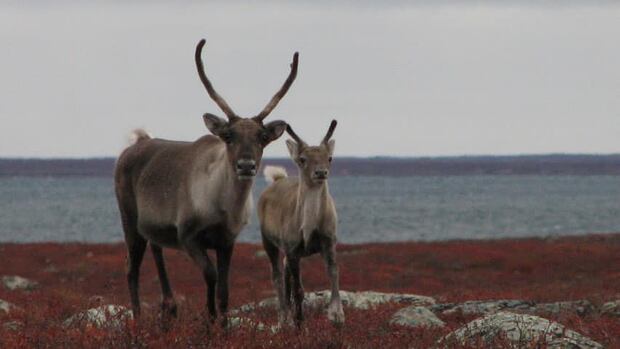Outfitters say caribou hunt ban put them out of business
N.W.T. government introduced ban 3 years ago
The caribou outfitting industry once brought hundreds of tourists to the Northwest Territories and pumped millions into the economy every year.
That ended when the territorial government announced a ban on hunting barren-ground caribou three years ago.
Outfitters lost their tags without notice and three years later, they're still in limbo. Now, one family business is on the verge of going under.
"There's a lot of talk about showing traditional hunting ways, preserving the heritage, the culture. I believe that's exactly what I'd done," said Malcolm Jaeb.
Jaeb is Tlicho and grew up spending every summer at his family's hunting lodge. Six years ago, he and his brother bought their own.
"It was a big step for us. Putting our life savings on the line and going out there and really believing it could work."
Jaeb’s plans didn’t work out. After the hunting ban, the brothers went to work at the diamond mines.

Maintaining the company is expensive - liability insurance alone costs about $16,000 a year.
"Our companies are both on the verge of bankruptcy," said Jaeb.
Outfitters want compensation for loss of livelihood
The family company, True North Safaris, is part of a lawsuit with other outfitters. They're asking the territorial government for compensation for losing their livelihood.
Another outfitter, Barry Taylor, owns Arctic Safaris. He said the lodges were built for caribou hunting. He said fishing or ecotourism don’t attract clientele that will pay premium prices.
"We're an expensive destination. I'm talking $7,500 per plane trip. You can't tell somebody coming up with a few dollars in their pocket it's going to cost them $1,000 each way just to get to the site," he said.
Taylor added he has no guarantee that the government won't implement other hunting bans or restrictions in the future.
"How many of us are prepared to sit there, spend a few hundred thousand dollars when this could happen two years down the road again?"
The territorial government offered grant money to help outfitters diversify their business. However, Taylor said that’s barely covered one trip into his camp to do annual maintenance.
Taylor said even if tags become available for outfitters, it would take a decade to rebuild the industry because big-game hunters have found other destinations.
In the meantime, Jaeb wants to see more thorough caribou surveys. He believes barren-ground caribou have changed their migration patterns and have not disappeared.
Jaeb hopes the lodges will be busy again someday.
